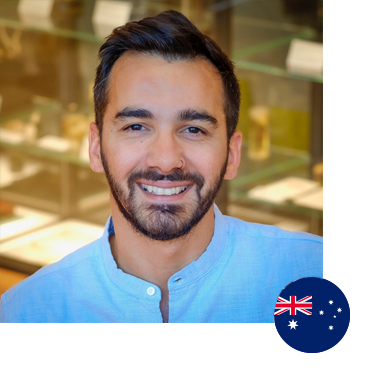Council members
There are currently seventeen TroCCAP members selected on basis of their expertise and ability to represent a region in the tropics and sub-tropics.
Dr. Filipe Dantas-Torres
Dr. Filipe Dantas-Torres is a researcher at the Aggeu Magalhães Institute, Fiocruz, Brazil. He graduated as a veterinarian from the Federal Rural University of Pernambuco. His MSc and DSc were awarded by the Aggeu Magalhães Institute. Filipe also holds a PhD from University of Bari, Italy. He is a Fellow of the Royal Entomological Society and a diplomate of the European College of Veterinary Parasitology. Filipe published over 330 peer reviewed articles and 27 book chapters. He is Editor-in-Chief of Parasites & Vectors. Filipe is a member of the Companion Animal Vector Borne Diseases World Forum and Brasileish. His research interests are in vector-borne diseases, including leishmaniasis, dirofilariosis and tick-borne diseases.
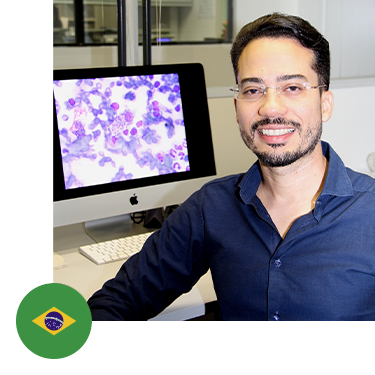

Professor Peter Irwin
Peter Irwin is Professor Emeritus at Murdoch University in Perth, Western Australia. Prof. Irwin is an internationally recognised expert in vector-borne diseases of companion animals and wildlife, and he is a member of the Companion Vector Borne Diseases (CVBD) World Forum (http://www.cvbd.org/), a working group of leading international. Peter graduated with a BVetMed from the Royal Veterinary College, London University in 1982 and his PhD studying canine babesiosis in Australia was awarded by James Cook University in 1991. Peter is a Fellow of the Australian and New Zealand College of Veterinary Scientists and a registered specialist in canine medicine. Peter continues his research focus on tick-borne infections of companion animals, wildlife and humans in Australia.
Professor Dr. Rebecca J Traub
Rebecca graduated from Murdoch University, Western Australia, with a Degree in Veterinary Medicine and Surgery in 1997. In 2004, she completed her PhD on canine parasitic zoonoses in tea-growing communities of northeast India, for which she was awarded the John Adrian Sprent Prize by the Australian Society for Parasitology. In 2006, she gained employment as a lecturer in Veterinary Public Health at the University of Queensland and in 2014 moved to the University of Melbourne as a Professor of Veterinary Parasitology (2014-2022) and Australian Research Council Future Fellow (2020-2022). She currently serves as Head and Chair Professor of Parasitology at the Department of Infectious Diseases and Public Health, City University of Hong Kong. Prof. Traub has published over 190 international peer-reviewed papers and book chapters covering the diagnosis, epidemiology and control of canine endoparasites and vector-borne diseases, with much of her research based in the Asia Pacific. Dr Traub’s research expertise has been formally recognised through consultations for the WHO, FAO, The Gates Foundation, the Veterinary Pharmaceutical Industry, and other not-for-profit organisations. In 2019 Prof Traub was awarded the Bancroft Mackerras Medal for Excellence by the Australian Society for Parasitology. Prof. Traub is a Founding Director of the Tropical Council for Companion Animal Parasites (TroCCAP) and former President of the Australian Society for Parasitology (2021-2023).


Dr. Adrian P Ybañez
Dr. Ybañez is the Vice-President for Research and Development and a Professor of the College of Veterinary Medicine of the Cebu Technological University, Cebu City, Philippines. He obtained his DVM degree (Cum Laude) from the Visayas State University and his PhD in Veterinary Sciences (Internal Medicine) from the United Graduate School of Veterinary Sciences of Gifu University and Obihiro University of Agriculture and Veterinary Medicine. He is a Diplomate in the Philippine College of Veterinary Public Health and a candidate Diplomate in the Philippine College of Canine Practitioners. He is actively involved in small animal medicine, parasitology and tick-borne disease research. He was awarded as the Grand Winner of The Outstanding Cebuano Youth Leader (TOCYL) – Young Professional Category by the Cebu City Government, as Outstanding Veterinarian in the Veterinary Research Practice by the Veterinary Practitioners Association of the Philippines, as The Outstanding Cebuano Awardee (Science and Technology Field), and as “Outstanding Young Professional in Veterinary Research” by the Philippine Society of Animal Science. He is also a current National Council Member of the Council on Education of the Philippine Veterinary Medical Association.
Professor Andrei D Mihalca
Prof. Andrei D. Mihalca, DVM, graduated from the Faculty of Veterinary Medicine in Cluj-Napoca Romania, in 2002 and in 2007 he obtained his Ph.D. degree in Parasitology and Parasitic Diseases at the same institution. Currently he is affiliated to the Department of Parasitology and Parasitic Diseases at the University of Agricultural Sciences and Veterinary Medicine of Cluj-Napoca, Romania. Since 2014, he is Diplomate of the European College of Zoological Medicine (ECZM) and European Veterinary Specialist in Wildlife Population Health. Between 2022 and 2025 he is serving and the president of ECZM. His main research interests include ecology of vectors and vector-borne diseases, wildlife diseases, tropical parasitology and conservation medicine. He published more than 180 papers in international peer-reviewed journals. He is currently the Chair for Guidelines at the Tropical Council for Companion Animal Parasites and the leader of Capacity Building in VectorNet. Additionally, he is an external consultant for EFSA, ECDC, CITES, WWF and IAEA and member of the Scientific Committee of ECZM. He coordinated more than 25 research projects, including the European EurNegVec COST Action. He is actively involved in research, conservation medicine and social veterinary medicine projects focused on parasitic and infectious diseases of small animals (dogs and cats) and wildlife across sub-Saharan Africa with previous work done in Kenya, Uganda, Ivory Coast, Somalia, Central African Republic and Liberia. Prof. Andrei D. Mihalca is in the editorial board of several peer-reviewed journals, including Parasites & Vectors, International Journal for Parasitology: Parasites and Wildlife, BMC Veterinary Research, Veterinary Parasitology: Regional studies and Reports etc. In his free time, he does wildlife photography and travels.
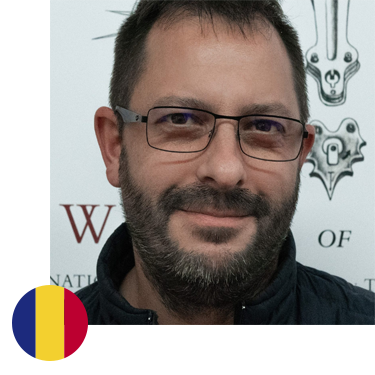

Dr. A Sangaran
Dr. A Sangaran graduated with Bachelor of Veterinary Science in 1991, from Madras Veterinary College, Chennai. He obtained his Master’s degree in Veterinary Parasitology in 1994 and his PhD from Madras Veterinary College in 1999, with his research focus on sero- and molecular diagnosis of cystic echinococcosis in food animals and humans. He is currently working as a Professor at the Department of Veterinary Parasitology, Madras Veterinary College, Tamilnadu, and at the Veterinary and Animal Sciences University, Chennai. Dr A Sangaran has received several awards during his academic career including the Dr J P Dubey Young Scientist Award and Smt Nishamani Parija Oration award for his contributory work in the field of Parasitic Zoonoses and Public Health. He is a life member of various scientific bodies involved in animal health care including the Small Animal Practitioner’s Association of Chennai (SAPAC) and currently, he is the General Secretary of the Indian Association for the Advancement of Veterinary Parasitology (IAAVP), affiliated to WAAVP.
Professor Banie Penzhorn
Banie Penzhorn is Emeritus Professor and Senior Research Fellow in the Department of Veterinary Tropical Diseases, Faculty of Veterinary Science, University of Pretoria, and research associate of the National Zoological Garden, South Africa. His primary research interest is tick-transmitted blood parasites, especially of dogs and cats, as well as wildlife. After an 8-year career as researcher with South African National Parks (during which be obtained a PhD on mountain zebra ecology and behaviour), Banie graduated with a BVSc from the University of Pretoria in 1980. He has published more than 150 papers in peer-reviewed journals and has supervised numerous MSc and PhD candidates. He is a diplomate (retired) of the European Veterinary Parasitology College (EVPC) and a member of the Companion-Animal Vector-Borne Diseases (CVBD) World Forum (http://www.cvbd.org/). In 2006 Banie was awarded the Elsdon-Dew Medal by the Parasitological Society of Southern Africa (PARSA) for his contribution to parasitology in Africa.


Dr. Bui Khanh Linh
Dr. Linh graduated as a veterinary doctor from Vietnam National University of Agriculture in 1993. Following this, she was employed as researcher in the parasitology department at the National Institute of Veterinary Research and promoted to Head of the Department of Parasitology in 2004. During this time, the major focus of her research was on f fascioliasis in cattle for which she undertook training in Australia. In 2005 she undertook a PhD at Yamaguchi University in Japan.on the immune response of parasitic diseases. In 2010, Dr Linh returned to Vietnam and was appointed a Lecturer at the Department of Parasitology, Vietnam National University of Agriculture, Hanoi. During this time, she assisted the have establishment of BioD, (Biodiversity Conservation and Tropical Disease Research Institute) with the purpose of continue her research into veterinary parasitic diseases in the tropics. Dr Linh also runs her own companion animal clinic in Hanoi.
Dr. Domenico Otranto
Dr Otranto is a Professor of Animal Parasitic Diseases at the Department of Veterinary Medicine (University of Bari) where he is currently Head (2015-2018; 2018-). He is President of the World Association for the Advancement of Veterinary Parasitology- WAAVP (2019-2022), Past President of the EVPC (2018-2020) and recipient of the Bayer Research Award (2019) and of the Young Scientist award (2007) from the WAAVP. His research output includes more than 500 peer-reviewed articles in international scientific journals and of numerous book chapters. His research focuses on the study of arthropods and arthropod borne diseases of zoonotic concern with both a basic and an applied approach. He has been Editor in Chief of Medical and Veterinary Entomology (2008-2017), co-Editor of Parasitology Research (2017-), Advisor Editor of Parasites and Vectors and editorial board member of five scientific international journals in the field of Parasitology. He is co-organizer of the Parasitology Summer Course.

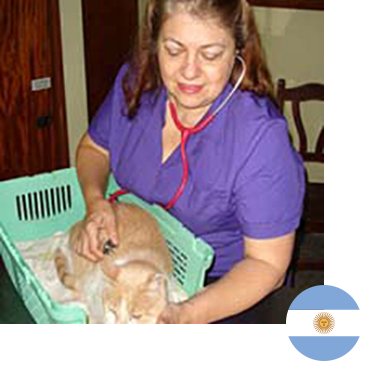
Dr. Gabriela Pérez Tort
Dr. Pérez Tort is Head of Virreyes Veterinary Hospital and was an Assistant Professor of Parasitic Diseases at the Veterinary School, University of Buenos Aires (JTP) till she retired in 2017. Since she graduated from the University of Buenos Aires in 1979, she has devoted her career to canine and feline veterinary clinical practice and to parasitic disease control. She has postgraduate qualifications in Pet Clinical Veterinary Medicine (1992), Parasitology (1993), Superior Education (1993), Senior Superior Education (2012),Online Teaching (2019) and cat friendly professional practice (2019). She has published three books and many book chapters on parasitic and infectious diseases of dogs and cats, has delivered over 110 presentations at scientific meetings and workshops and published over 50 scientific papers. From 2013 she has taught into many postgraduate courses at the Universities of Argentina, Chile and Mexico. She has been recognized through being an award recipient for her research on dirofilariosis, demodicosis and enteric coccidiosis by the Argentine Association of Parasitology and also received two awards from the University of Buenos Aires. She has delivered over 200 international lectures on parasitic and infectious diseases of dogs and cats. She was Director of the Volunteer Veterinary Program of the National Education Ministry. She is a Member of many National and international Associations including the WAAVP, AAP,AHS, ISFM.
Professor Gad Baneth
Professor Baneth graduated from the Hebrew University Koret School of Veterinary Medicine in Israel in 1990. He did a Small Animal internship and residency at the Hebrew University until 1994 followed by a fellowship in Internal Medicine and Infectious Diseases Research at the College of Veterinary Medicine, North Carolina State University 1994 – 1995. He received a PhD in veterinary parasitology from the Hebrew University in 2000. Professor Baneth served as the head of the Small Animal Internal Medicine Department at the Hebrew University Veterinary Teaching Hospital. He is a diplomate of the European College of Veterinary Clinical Pathology (ECVCP), an associate member of the European Veterinary Parasitology College (EVPC) and an editorial advisory board member for the Journal Veterinary Parasitology since 2006. He is the vice president of the LeishVet group for standardization of the diagnosis, treatment and prevention of canine leishmanioasis and a member of Board of Directors, Israel Society for Parasitology, Protozoology and Tropical Diseases. He was the Chairman of the World Small Animal Veterinary Association (WSAVA) Scientific Advisory Committee. His research interests focus on the pathogenesis, diagnosis and treatment of veterinary and zoonotic vector-borne infectious diseases including leishmaniosis, relapsing fever borreliosis, canine ehrlichiosis, babesiosis, hepatozoonosis, trypanosomiasis and dirofilariasis. Prof. Baneth is involved in the study of zoonotic and veterinary diseases in the Mediterranean Basin, Uzbekistan, Ethiopia, and Southern Europe. He is the author of more than 300 scientific publications and book chapters. Prof. Baneth served as an advisor to the European Food Safety Authority (EFSA) on leishmaniosis. He is currently the Director of the Koret School of Veterinary Medicine, Hebrew University, Israel.

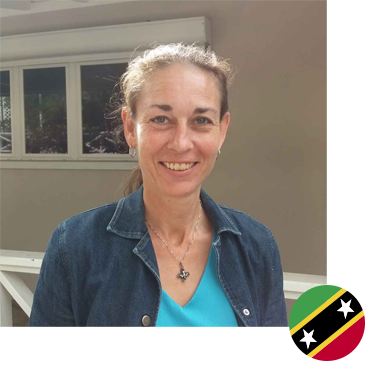
Dr. Jennifer Ketzis
Jennifer Ketzis received her PhD in Animal Science with minors in parasitology and epidemiology from Cornell University in 1999. After completing a post-doc focused on screening medicinal plants for bioactive compounds, she joined Novartis Animal Health, Basel, Switzerland employed first as a Research and Development Manager in Natural Medicinal Products and later as an International Project Leader in product development. In 2005, she joined Charlies River Laboratories, Ireland, a contract research organization, where she established a research and diagnostic parasitology laboratory and served as an investigator on numerous anthelmintic efficacy studies. Currently, as an Associate Professor at Ross University School of Veterinary Medicine on St. Kitts in the West Indies, Jennifer is focused on teaching applied veterinary parasitology and conducting research on the prevalence, diagnosis and treatment of dog and cat parasites in the region. Jennifer has published several peer reviewed journal articles and is an Associate Editor for Veterinary Parasitology – Regional Studies and Reports.
Dr. Malaika Watanabe
Malaika Watanabe obtained her Doctor of Veterinary Medicine (DVM) degree from Universiti Putra Malaysia (UPM) in 2001. She worked for a year as a demonstrator and research assistant at the Parasitology Laboratory of the Faculty of Veterinary Medicine, UPM before furthering her studies. She joined the United Graduate School of Veterinary Sciences, Yamaguchi University in 2003 and graduated with a PhD degree in Small Animal Internal Medicine in 2006. Following her PhD, she was appointed visiting professor at the Faculty of Animal Husbandry and Veterinary Sciences, Agricultural University Peshawar, Pakistan. She then joined the Faculty of Veterinary Medicine, UPM in 2008. She was promoted to Associate Professor of Companion Animal Medicine at the Department of Companion Animal Medicine and Surgery, Faculty of Veterinary Medicine, UPM in 2012 where she is currently employed. Dr. Watanabe is also the head of Companion Animal Medicine (wards) at the University Veterinary Hospital, UPM. Her research interest is canine and feline infectious diseases with special emphasis on vector-borne diseases. She is currently actively involved in various collaborative research projects both nationally and internationally. She has published numerous papers in peer-reviewed journals and has co-authored a book on cats.

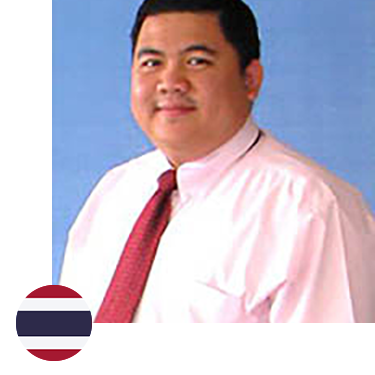
Dr. Tawin Inpankaew
Dr. Inpankaew graduated with a degree in Veterinary Medicine from Kasetsart University, Thailand in 2002. Then he finished his MSc (Tropical Medicine) at Mahidol University, Bangkok on the molecular epidemiology of Giardia in humans and dogs in Temple Communities in Bangkok in 2004. After that he secured a Teaching and Research Lectureship in Parasitology at the department of Parasitology, Faculty of Veterinary Medicine, Kasetsart University, Bangkok. In 2010, Dr. Inpankaew chose to pursue a PhD on domestic animals as reservoirs of zoonotic hookworm and Giardia duodenalis in a rural village, Cambodia, through the University of Copenhagen, Denmark for which he was awarded PhD in 2014. Dr Inpankaew’s research continues in the field of veterinary parasitology, with a focus on the epidemiology and control of parasitic zoonoses and canine vector borne diseases in Asia. Dr Inpankaew is currently Head of the Department of Parasitology, Faculty of Veterinary Medicine, Kasetsart University, Thailand. He has published over 35 journal articles, many of which are in international peer-reviewed journals and is a member of Parasitology and Tropical Medicine Association of Thailand (http://www.ptat.org/th).
Prof. Alicia Rojas
Prof. Rojas is a microbiologist and parasitologist graduated from the University of Costa Rica. She obtained her PhD in Animal Sciences at the Hebrew University of Jerusalem in Israel where she focused on helminthiases of veterinary importance. Then she did postdoctoral research at the Weizmann Institute of Sciences about host-pathogen interactions of the human malaria parasite. Currently, she is affiliated to the Faculty of Microbiology and the Research Center for Tropical Diseases in the University of Costa Rica. Her lab researches the epidemiology, phylogeography and host-pathogen interactions of helminths of veterinary and human importance from a One Health perspective. She is the coordinator of the International Network for the Research of Angiostrongylus costaricensis, is associate editor of the journals Parasites & Vectors, Acta Tropica and Current Research in Parasitology and Vector-Borne Diseases. She teaches medical helminthology for undergrad microbiology students and collaborates in programs of community welfare that aims the diagnosis, treatment, and prevention of parasitosis in vulnerable children’s populations of her country. She has co-authored more than 40 peer-reviewed articles, she was awarded the Odile Prize for Young Parasitologists in 2020 and an honorary mention for Young Women Scientist by the Interamerican Network of Academies of Sciences in 2022.

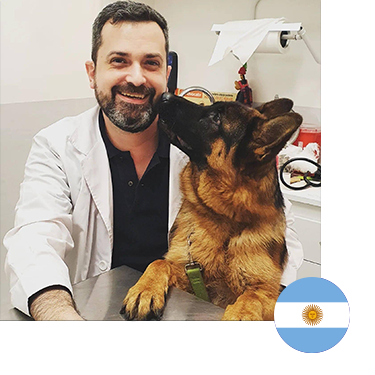
Dr. Pablo Borrás
Dr Pablo Borras is graduated from the Faculty of Veterinary Sciences of the University of Buenos Aires, Argentina. He has a master's degree in zoonoses awarded by UNNOBA and ANLIS Malbrán in Argentina. He is a specialist in infectious and parasitic diseases in companion animals. He has published different scientific articles in national and international journals. He is associate editor of Parasites & Vectors. He is a researcher at the CCV - Maimonides University and advisor to different national organizations and private institutions. His interests are clinical research on parasitic diseases and infectious diseases of dogs and cats.
Dr. Vito Colella
Dr. Vito Colella is a Senior Lecturer in Veterinary and Medical Parasitology and a Senior Research Fellow in One Health at the University of Melbourne. He graduated as a veterinarian from the University of Bari, where he also earned his PhD with a thesis on neglected zoonotic parasitic infections in dogs and cats. His research team at UniMelb focuses on developing cutting-edge diagnostic tools to diagnose and control zoonotic and neglected tropical diseases in animals and humans across the Asia-Pacific region. The team also evaluates the effectiveness of One Health intervention strategies to reduce the impact of zoonotic parasites on both animal and human populations.
